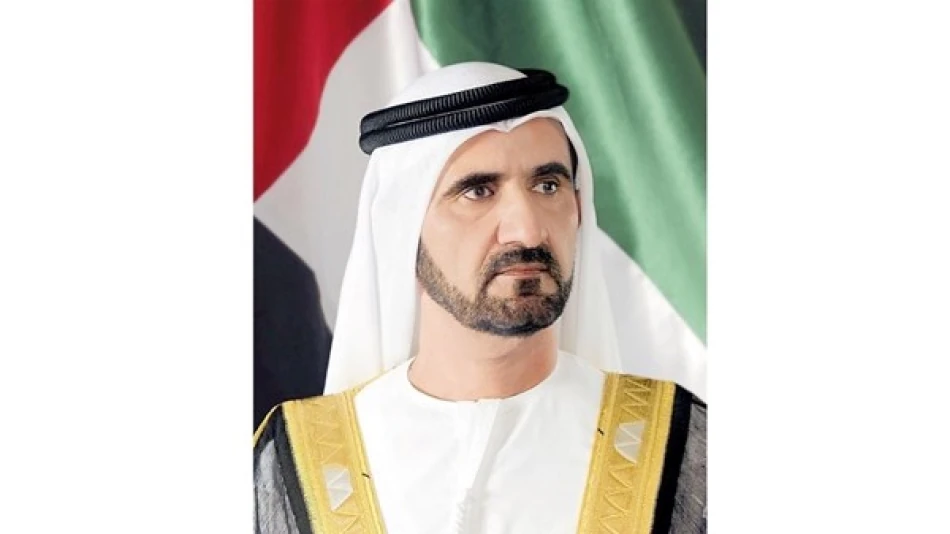
Dubai's Stalwart Retired Security Personnel Propel the Emirate's Safety Journey: Mohammed bin Rashid
Dubai Ruler Honors Retired Security Forces as Pillars of Emirate's Safety Success
Sheikh Mohammed bin Rashid Al Maktoum, Vice President and Prime Minister of the UAE and Ruler of Dubai, has publicly recognized retired security personnel as the foundational force behind Dubai's renowned safety record. His tribute highlights how veteran officers' dedication and discipline created the framework for what is now considered one of the world's safest major cities.
Recognition of Service Legacy
In a statement released through Dubai Government's official media office on X platform, Sheikh Mohammed emphasized that retired security officers "are a solid pillar in Dubai's security journey." He praised their performance of duties "with honor and sincerity," noting they "raised the banner of giving in the most difficult and precise situations."
The Dubai leader directly linked current security achievements to the foundational work of these veterans, stating that Dubai's security excellence "is nothing but an extension of the values of discipline, efficiency, and loyalty they instilled."
Strategic Implications for Dubai's Global Position
Economic Impact of Security Excellence
Dubai's safety reputation serves as a critical competitive advantage in attracting international business and tourism. The emirate consistently ranks among the world's safest cities, with crime rates significantly lower than other global financial centers like London or New York. This security foundation, built by the recognized veterans, directly supports Dubai's position as a regional hub for multinational corporations and wealthy individuals.
Model for Regional Security Development
The public recognition reflects a broader Gulf strategy of professionalizing security forces while maintaining strong institutional loyalty. Unlike security transitions in other emerging economies, the UAE has successfully maintained continuity between veteran expertise and modern policing methods. This approach contrasts with countries that have experienced security gaps during rapid modernization.
Institutional Continuity Strategy
Sheikh Mohammed's statement suggests Dubai's security success stems from institutional memory preservation rather than wholesale system replacement. By honoring retired personnel while they remain active in advisory or training roles, Dubai maintains operational knowledge that many rapidly developing cities lose during modernization.
This veteran integration model has practical implications for other emerging global cities seeking to build reliable security frameworks without losing cultural and operational continuity. The approach demonstrates how traditional loyalty-based systems can evolve into modern professional structures without losing effectiveness.
Broader Regional Context
The timing of this recognition aligns with increased regional focus on internal security capabilities as Gulf states diversify their economies and increase international exposure. As Dubai positions itself for post-oil economic leadership, maintaining its security reputation becomes essential for sustaining investor confidence and tourism growth in an increasingly competitive regional market.
Most Viewed News

 Layla Al Mansoori
Layla Al Mansoori






